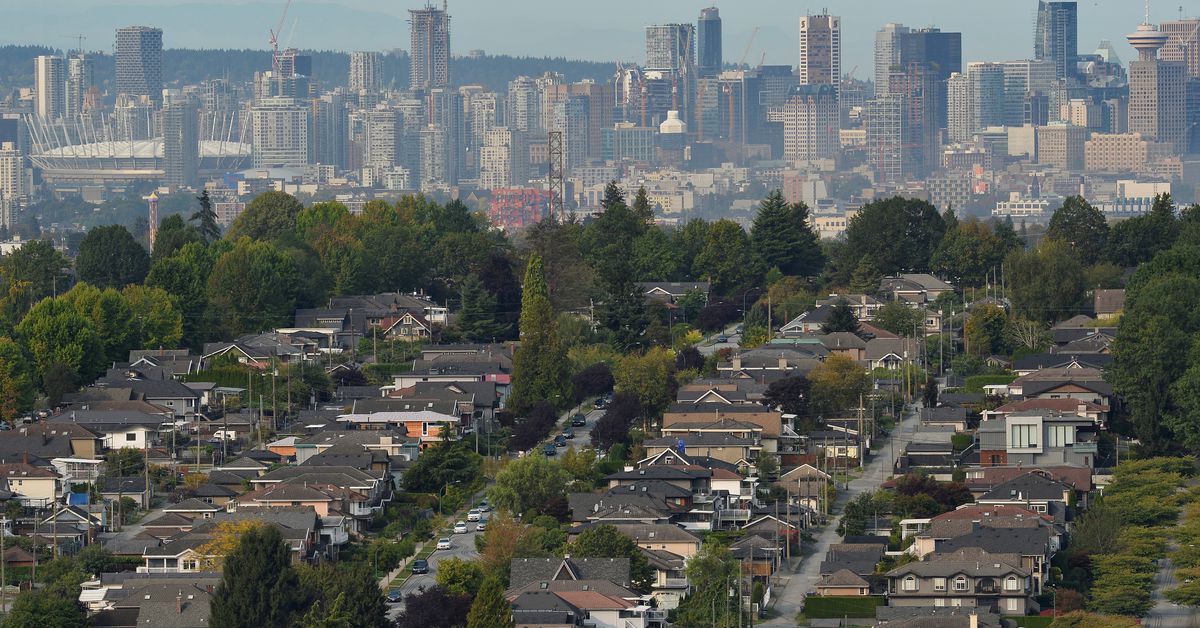Canada will change how it counts non-permanent residents, the main statistics agency said on Thursday, after an economist said the current methodology may have overlooked about a million foreign students, workers and others.
I really doubt students and workers are the problem here. Perhaps Canada should look into taxing empty investment homes/condos/etc. and crack down on homes being used as hotels (like AirBnB) instead of residences.
Oh no, that may actually contribute to fixing the issue. We can’t do that.
How much empty housing do you think exists in canada’s largest cities?
Over 2,100 properties were self reported as being vacant in Toronto. No doubt in my mind many people lied and the number of vacant units sits around 3,500. Which isn’t a lot but would definitely help.
In a city with 1.25 million homes, why are we so focused on “taxing empty investment homes” (something that already exists) for a few thousand units instead of building new homes?
Why not both? 🙂
Yeah sure. This is more a response to the top level comment (and the general sentiment) that empty units and financialization cause the scarcity, instead of just addressing the scarcity.
There are entire floors and even entire buildings sitting vacant in Vancouver because of certain foreign “investment.” They were having real estate conventions where property was being sold in a certain country sight unseen and is now just sitting there doing nothing and rotting. These “investments” were/ are merely vehicles for money laundering to get it out of a certain country. This has been basically known about for years and has been going on for years. A person making a decent wage used to be able to afford a home in Vancouver. Now, everyone is priced out of the market. The Olympics were the worst thing that probably has ever happened to Vancouver and derailed the city. Olympics were basically free advertising for foreign investment that opened the eyes of a certain country to decide to buy up anything and everything because of the lax controls in place and the politicians being cool with the grift.
Ah okay I’m asking because people seem to always point to empty homes as the problem and support that thesis with anecdotal evidence.
The reality is new vacancy taxes in Ontario and BC captured a lot of those empty homes and there’s simply nowhere near the scale of empty homes to make any reasonable dent in the housing crisis, even if we converted every single one to occupied.
a) this is before Toronto instituted the empty homes tax - less incentive for homeowners to rent out their empty unit b) this is before the explosion of rental price increases post-covid - even less incentive for homeowners to rent out their unit b) measuring lights on or off a couple of times a year isn’t a great proxy for assessing empty units
Nationalise housing.
I love reading comments like these.
Yes, let’s turn an entire country’s housing stock into the projects.
There’s got to be a better way to provide housing than whatever we’re doing now, but putting an inept government, run by corrupt or otherwise incompetent career bureaucrats, in charge of the roof over my head would be a hilarious joke if people weren’t being completely earnest about it.
Yes, let’s turn an entire country’s housing stock into the projects.
No fucker wants that, and you’re disingenuous for suggesting they do, or that nationalisation of housing means that.
There’s got to be a better way to provide housing than whatever we’re doing now, but putting an inept government, run by corrupt or otherwise incompetent career bureaucrats, in charge of the roof over my head would be a hilarious joke if people weren’t being completely earnest about it.
Another strawman. You think nationalisation of housing happens without a government competent enough to do it?
You might as well complain about buses because they don’t work without wheels.
This is the best summary I could come up with:
OTTAWA, Aug 31 (Reuters) - Canada will change how it counts non-permanent residents, the main statistics agency said on Thursday, after an economist said the current methodology may have overlooked about a million foreign students, workers and others.
The decision comes amid a fierce debate on a housing affordability crisis, which has been blamed on an increase in migrants and international students, fueling demand for homes just as rising costs have slowed construction.
In a note on Wednesday, CIBC Capital Markets economist Benjamin Tal said the argument for any such limits would be even more pressing if the government had the real figures.
Statistics Canada said it stood by its figures, but added that it will publish new, more detailed data on non-permanent residents next month using a revised methodology.
“We constantly evaluate and review our methodology to consider emerging demographic trends and new data needs,” Statscan said in an emailed statement.
Statscan’s terminology for non-permanent residents covers people living in Canada with work or study permits and asylum seekers.
The original article contains 234 words, the summary contains 170 words. Saved 27%. I’m a bot and I’m open source!


